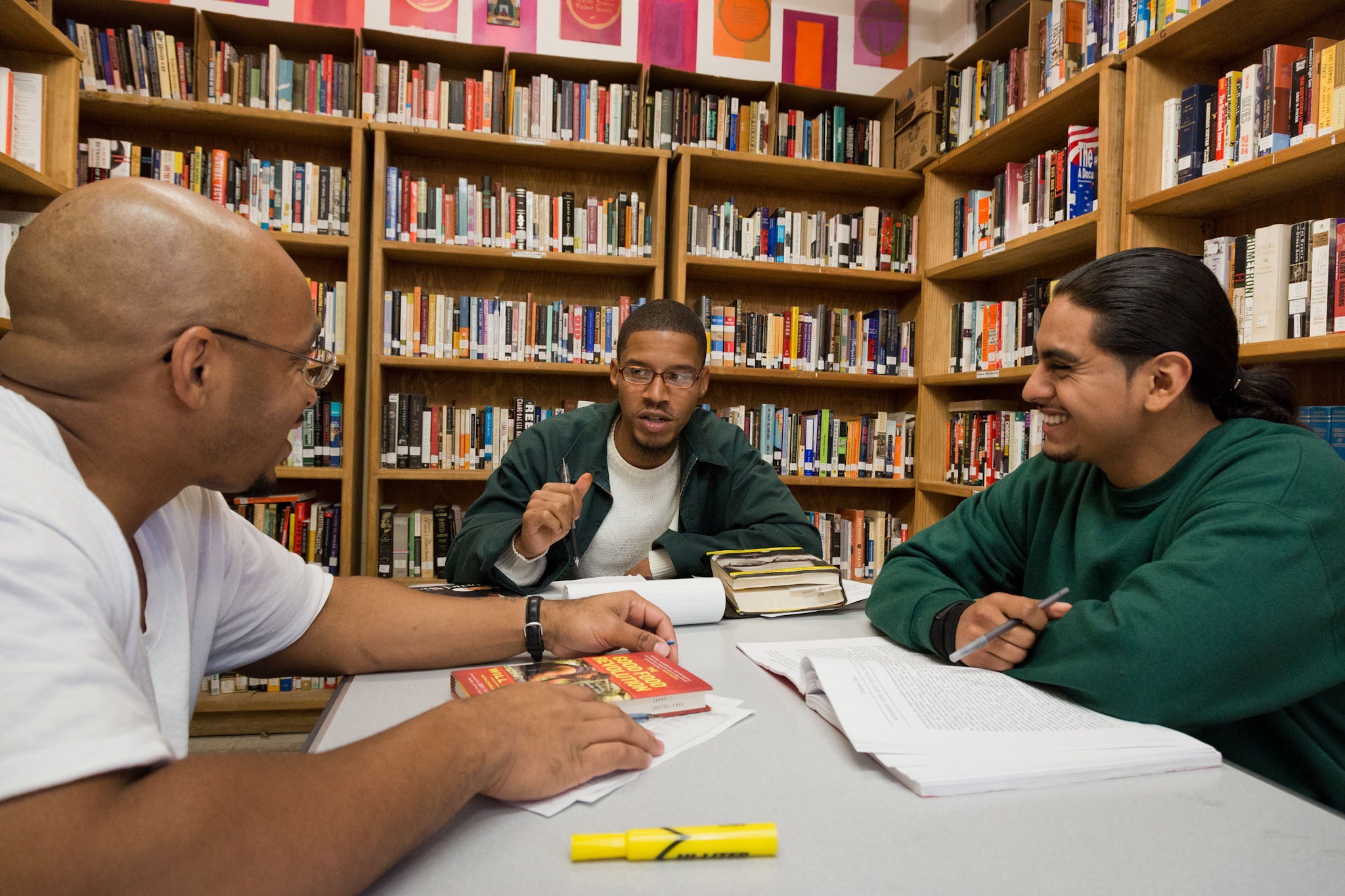
Access to higher education in prison
By Abigail Grimes
On October 1, 2019, the Whitney Humanities Center hosted a special early screening of selected clips from the upcoming, four-episode PBS docuseries “College Behind Bars.” The series provides an intimate and delicate look at what life is like as an incarcerated person enrolled in the Bard Prison Initiative (BPI), an intense, academically rigorous college program for incarcerated students in New York state. It was shot over several years and is directed and produced by Lynn Novick (83’ B.A.), produced by Sarah Botstein, and executive produced by Ken Burns.
During the screening, the Yale Prison Education Initiative at Dwight Hall (YPEI) sold sweatshirts and passed out laptop stickers. Inside the auditorium, Zelda Roland (BR ‘08 & Ph.D. ‘16) the founding director of YPEI, welcomed viewers and spoke about how BPI inspired the efforts of YPEI. YPEI is a member of the National Consortium for the Liberal Arts in Prison, which is housed at Bard College, and BPI gave a founding grant to the YPEI.
The opening shots of the “College Behind Bars” alternate scenes of rain-soaked barbed wire fences and gray cinder block walls with scenes of sun-filled classrooms and shelves lined with books. The clips reveal the tension between the intellectual excellence of the incarcerated students and the lack of agency they possess as they serve out their sentences.
The first batch of clips introduces us to the program and its students—classes are rigorous, meant to be as close to the courses taught at Bard College as possible. The program itself is highly selective. Students do the bulk of work outside of class, reading and writing in their cells. Many of these cells are shown in the series. We can see some variety in the cells shown, but a few elements reappear from shot to shot: a desk covered with books and papers; a toilet within a few feet from the foot of the bed.
After the first clips were shown, the panel—which included Elitha Smith (the sister of one of the incarcerated students featured in the documentary), Producer Sarah Botstein, Jule Hall (a BPI graduate), and Director Lynn Novick—filed onto the stage. Novick, when asked about the process of filming the documentary within the setting of a prison, reflected on the unique opportunity the series provides to look at the physical space of a prison—many of the areas shown are usually inaccessible to visitors. She also reflected on the challenges of filming in the prison over a long period of time; there were obvious constraints and difficulties with the visual aspects of the film. An initial concern was the visual monotony of the space, but Novick said that this issue was addressed as access grew to different parts of the prison that offered more varied visuals.
Later clips in the series touch on the political change surrounding mass incarceration and access to education in prison that occurred during the filming of the documentary. President Obama’s Department of Education provided institutional support for prison education through a policy that extended Pell Grants to incarcerated people on a temporary, experimental basis. Under this policy, 12,000 more incarcerated people were able to access higher education while serving time.
Beyond the discussions of policy and BPI, the documentary has a deeper focus on the morality of mass incarceration and on the role of prisons in rehabilitation. One BPI student reflected on the label of “violent criminal,” saying, “I am not worthy of redemption, and part of the reason that we think this is because we word it ‘violent criminal’. This person did something terrible, [so] he should be punished for it, but he’s a person. They might change. They might not be a bad person.”
At Yale, there is continued effort to make higher education accessible to incarcerated people. Since May 2018, YPEI has been able to offer Yale courses to incarcerated students through a partnership with Yale Summer Session, where incarcerated students can enroll in YSS classes and Yale faculty are employed and paid the same as they would be for teaching a traditional YSS course on campus. This semester, Yale is reviewing YPEI through a faculty committee to determine the future of the program, including its ability to offer classes in prison year-round. Yale faculty and students are able to get involved with YPEI—Dr. Roland says that one way to support YPEI is to write to residential college deans or heads, professors, Directors of Undergraduate or Graduate Studies, departmental chairs, and the leaders of cultural houses to express support and encourage those in power to provide support as well.
“College Behind Bars” will premiere on PBS on November 25th.
Abigail is a Sophomore in Pauli Murray College. You can contact her at abigail.grimes@yale.edu.